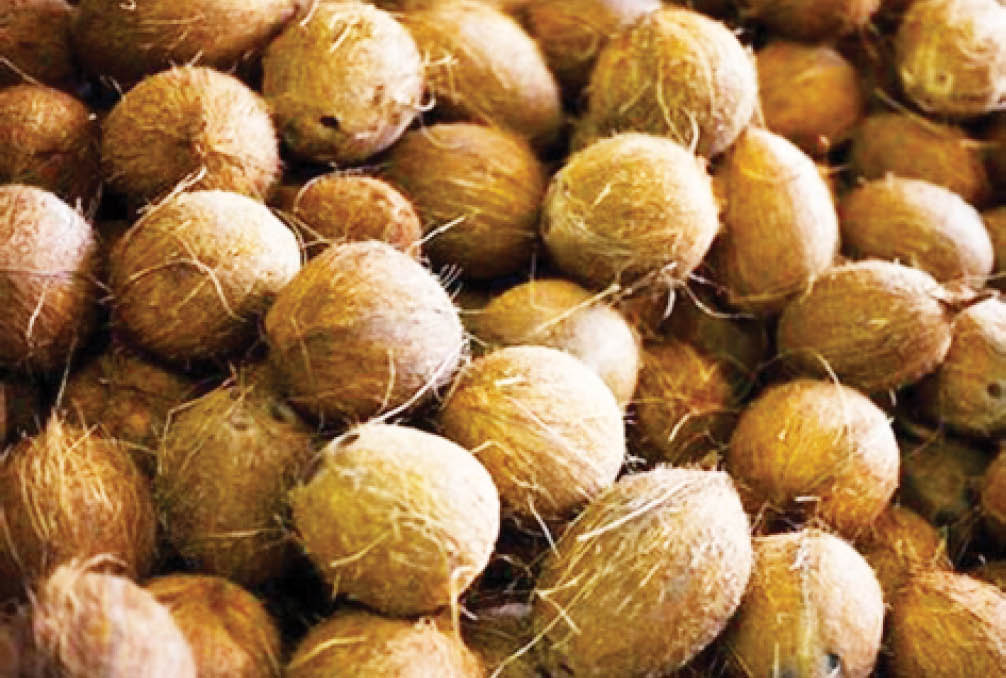Demand for coconut seedlings increasing – FG
As part of efforts to boost the livelihood of farmers, the Federal Ministry of Agriculture and Rural Development (FMARD) has trained 50 coconut farmers and processors on agro-forestry system-based plantation model to boost the livelihood of the farmers in Edo State. Speaking during the training, the Minister of Agriculture, Dr Mohammad Abubakar, said the training […]

As part of efforts to boost the livelihood of farmers, the Federal Ministry of Agriculture and Rural Development (FMARD) has trained 50 coconut farmers and processors on agro-forestry system-based plantation model to boost the livelihood of the farmers in Edo State.
Speaking during the training, the Minister of Agriculture, Dr Mohammad Abubakar, said the training was one of the federal government’s plan to attain food security and self-sufficiency in Nigeria.
“In an effort to attain food security, self-sufficiency, as well as improve the livelihood of coconut farmers and processors, the government, through the coconut value chain, decided to provide you with the necessary knowledge and skills to establish and maintain a successful plantation,” he said.
The minister, who was represented by Chukwuemeka Ukattah, a director in the ministry, said members of staff would be trained on nursery establishment, field development, harvesting and processing to meet local and international markets standard and demand.
- The Day Ironsi Died —Colonel Sani Bello (His Former ADC)
- The Day Ironsi Died —Colonel Sani Bello (His Former ADC)
On his part, the executive director of the Nigerian Institute for Oil Palm Research (NIFOR), Dr Celestine Ikuenobe, noted that Nigeria’s coconut production was far below the demand.
“I am sure that if the National Coconut Producers Processors and Marketers Association of Nigeria (NACOPPMAN) worked with this agro-forestry based plantation model, the coconut value chain would be on a scale that could contribute very significantly to our economy.
“We suddenly got a huge demand for coconut seedlings in the last three to four years, but we were caught napping because we did not prepare for the fact that there was going to be an upsurge in the demand for coconut seedlings,” he said.
